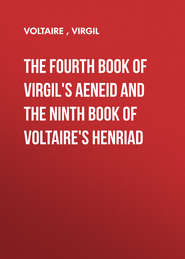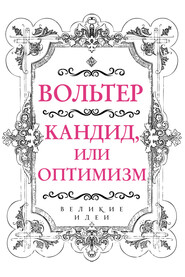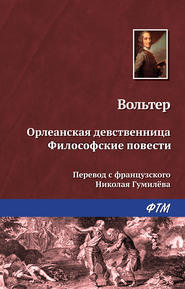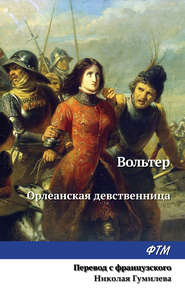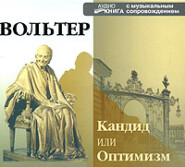По всем вопросам обращайтесь на: info@litportal.ru
(©) 2003-2024.
✖
A Philosophical Dictionary, Volume 05
Настройки чтения
Размер шрифта
Высота строк
Поля
This request, which was really presented, will not be misplaced in a work like the present.
SECTION III
The feast given to the Roman people by Julius Cæsar and the emperors who succeeded him are well known. The feast of twenty-two thousand tables served by twenty-two thousand purveyors; the naval fights on artificial lakes, etc., have not, however, been imitated by the Herulian, Lombard, and Frankish chieftains, who would have their festivity equally celebrated.
FERRARA
What we have to say of Ferrara has no relation to literature, but it has a very great one to justice, which is much more necessary than the belles-lettres, and much less cultivated, at least in Italy.
Ferrara was constantly a fief of the empire, like Parma and Placentia. Pope Clement VIII. robbed Cæsar d'Este of it by force of arms, in 1597. The pretext for this tyranny was a very singular one for a man who called himself the humble vicar of Jesus Christ.
Alphonso d'Este, the first of the name, sovereign of Ferrara, Modena, Este, Carpio, and Rovigno, espoused a simple gentlewoman of Ferrara, named Laura Eustochia, by whom he had three children before marriage. These children he solemnly acknowledged in the face of the Church. None of the formalities prescribed by the laws were wanting at this recognition. His successor, Alphonso d'Este, was acknowledged duke of Ferrara; he espoused Julia d'Urbino, the daughter of Francis, duke d'Urbino, by whom he had the unfortunate Cæsar d'Este, the incontestable heir of all the property of all the family, and declared so by the last duke, who died October 27, 1597. Pope Clement VIII., surnamed Aldobrandino, and originally of the family of a merchant of Florence, dared to pretend that the grandmother of Cæsar d'Este was not sufficiently noble, and that the children that she had brought into the world ought to be considered bastards. The first reason is ridiculous and scandalous in a bishop, the second is unwarrantable in every tribunal in Europe. If the duke was not legitimate, he ought to have lost Modena and his other states also; and if there was no flaw in his title, he ought to have kept Ferrara as well as Modena.
The acquisition of Ferrara was too fine a thing for the pope not to procure all the decretals and decisions of those brave theologians, who declare that the pope can render just that which is unjust. Consequently he first excommunicated Cæsar d'Este, and as excommunication necessarily deprives a man of all his property, the common father of the faithful raised his troops against the excommunicated, to rob him of his inheritance in the name of the Church. These troops were defeated, but the duke of Modena soon saw his finances exhausted, and his friends become cool.
To make his case still more deplorable, the king of France, Henry IV., believed himself obliged to take the side of the pope, in order to balance the credit of Philip II. at the court of Rome; in the same manner that good King Louis XII. less excusably dishonored himself by uniting with that monster Alexander VI., and his execrable bastard, the duke of Borgia. The duke was obliged to return, and the pope caused Ferrara to be invaded by Cardinal Aldobrandino, who entered this flourishing city at the head of a thousand horse and five thousand foot soldiers.
It is a great pity that such a man as Henry IV. descended to this unworthiness which is called politic. The Catos, Metelluses, Scipios, and Fabriciuses would not thus have betrayed justice to please a priest – and such a priest!
From this time Ferrara became a desert; its uncultivated soil was covered with standing marshes. This province, under the house of Este, had been one of the finest in Italy; the people always regretted their ancient masters. It is true that the duke was indemnified; he was nominated to a bishopric and a benefice; he was even furnished with some measures of salt from the mines of Servia. But it is no less true that the house of Modena has incontestable and imprescriptable rights to the duchy of Ferrara, of which it was thus shamefully despoiled.
Now, my dear reader, let us suppose that this scene took place at the time in which Jesus Christ appeared to his apostles after his resurrection, and that Simon Barjonas, surnamed Peter, wished to possess himself of the states of this poor duke of Ferrara. Imagine the duke coming to Bethany to demand justice of the Lord Jesus. Our Lord sends immediately for Peter and says to him, "Simon, son of Jonas, I have given thee the keys of heaven, but I have not given thee those of the earth. Because thou hast been told that the heavens surround the globe, and that the contained is in the containing, dost thou imagine that kingdoms here below belong to thee, and that thou hast only to possess thyself of whatever thou likest? I have already forbidden thee to draw the sword. Thou appearest to me a very strange compound; at one time cutting off the ear of Malchus, and at another even denying me. Be more lenient and decorous, and take neither the property nor the ears of any one for fear of thine own."
FEVER
It is not as a physician, but as a patient, that I wish to say a word or two on fever. We cannot help now and then speaking of our enemies; and this one has been attacking me for more than twenty years; not Fréron himself has been more implacable.
I ask pardon of Sydenham, who defined fever to be "an effort of nature, laboring with all its power to expel the peccant matter." We might thus define smallpox, measles, diarrhœa, vomitings, cutaneous eruptions, and twenty other diseases. But, if this physician defined ill, he practised well. He cured, because he had experience, and he knew how to wait.
Boerhaave says, in his "Aphorisms": "A more frequent opposition, and an increased resistance about the capillary vessels, give an absolute idea of an acute fever." These are the words of a great master; but he sets out with acknowledging that the nature of fever is profoundly hidden.
He does not tell us what that secret principle is which develops itself at regular periods in intermittent fever – what that internal poison is, which, after the lapse of a day, is renewed – where that flame is, which dies and revives at stated moments.
We know fairly well that we are liable to fever after excess, or in unseasonable weather. We know that quinine, judiciously administered, will cure it. This is quite enough; the how we do not know.
Every animal that does not perish suddenly dies by fever. The fever seems to be the inevitable effect of the fluids that compose the blood, or that which is in the place of blood. The structure of every animal proves to natural philosophers that it must, at all times, have enjoyed a very short life.
Theologians have held, as have promulgated other opinions. It is not for us to examine this question. The philosophers and physicians have been right in sensu humano, and the theologians, in sensu divino. It is said in Deuteronomy, xxviii, 22, that if the Jews do not serve the law they shall be smitten "with a consumption, and with a fever, and with an inflammation, and with an extreme burning." It is only in Deuteronomy, and in Molière's "Physician in Spite of Himself," that people have been threatened with fever.
It seems impossible that fever should not be an accident natural to an animate body, in which so many fluids circulate; just as it is impossible for an animate body not to be crushed by the falling of a rock.
Blood makes life; it furnishes the viscera, the limbs, the skin, the very extremities of the hairs and nails with the fluids, the humors proper for them.
This blood, by which the animal has life, is formed by the chyle. During pregnancy this chyle is transmitted from the uterus to the child, and, after the child is born, the milk of the nurse produces this same chyle. The greater diversity of aliments it afterwards receives, the more the chyle is liable to be soured. This alone forming the blood, and this blood, composed of so many different humors so subject to corruption, circulating through the whole human body more than five hundred and fifty times in twenty-four hours, with the rapidity of a torrent, it is not only astonishing that fever is not more frequent, it is astonishing that man lives. In every articulation, in every gland, in every passage, there is danger of death; but there are also as many succors as there are dangers. Almost every membrane extends or contracts as occasion requires. All the veins have sluices which open and shut, giving passage to the blood and preventing a return, by which the machine would be destroyed. The blood, rushing through all these canals, purifies itself. It is a river that carries with it a thousand impurities; it discharges itself by perspiration, by transpiration, by all the secretions. Fever is itself a succor; it is a rectification when it does not kill.
Man, by his reason, accelerates the cure by administering bitters, and, above all, by regimen. This reason is an oar with which he may row for some time on the sea of the world when disease does not swallow him up.
It is asked: How is it that nature has abandoned the animals, her work, to so many horrible diseases, almost always accompanied by fever? How and why is it that so many disorders exist with so much order, formation, and destruction everywhere, side by side? This is a difficulty that often gives me a fever, but I beg you will read the letters of Memmius. Then, perhaps, you will be inclined to suspect that the incomprehensible artificer of vegetables, animals, and worlds, having made all for the best, could not have made anything better.
FICTION
Is not a fiction, which teaches new and interesting truths, a fine thing? Do you not admire the Arabian story of the sultan who would not believe that a little time could appear long, and who disputed with his dervish on the nature of duration? The latter to convince him of it, begged him only to plunge his head for a moment into the basin in which he was washing. Immediately the sultan finds himself transported into a frightful desert; he is obliged to labor to get a livelihood; he marries, and has children who grow up and ill treat him; finally he returns to his country and his palace and he there finds the dervish who has caused him to suffer so many evils for five and twenty years. He is about to kill him, and is only appeased when he is assured that all passed in the moment in which, with his eyes shut, he put his head into the water.
You still more admire the fiction of the loves of Dido and Æneas, which caused the mortal hatred between Carthage and Rome, as also that which exhibits in Elysium the destinies of the great men of the Roman Empire.
You also like that of Alcina, in Ariosto, who possesses the dignity of Minerva with the beauty of Venus, who is so charming to the eyes of her lovers, who intoxicates them with voluptuous delights, and unites all the loves and graces, but who, when she is at last reduced to her true self and the enchantment has passed away, is nothing more than a little shrivelled, disgusting, old woman.
As to fictions which represent nothing, teach nothing, and from which nothing results, are they anything more than falsities? And if they are incoherent and heaped together without choice, are they anything better than dreams?
You will possibly tell me that there are ancient fictions which are very incoherent, without ingenuity, and even absurd, which are still admired; but is it not rather owing to the fine images which are scattered over these fictions than to the inventions which introduce them? I will not dispute the point, but if you would be hissed at by all Europe, and afterwards forgotten forever, write fictions similar to those which you admire.
FIERTÉ
Fierté is one of those expressions, which, having been originally employed in an offensive sense, are afterwards used in a favorable one. It is censure when this word signifies high-flown, proud, haughty, and disdainful. It is almost praise when it means the loftiness of a noble mind.
It is a just eulogium on a general who marches towards the enemy with fierté. Writers have praised the fierté of the gait of Louis XIV.; they should have contented themselves with remarking its nobleness.
Fierté, without dignity, is a merit incompatible with modesty. It is only fierté in air and manners which offends; it then displeases, even in kings.
Fierté of manner in society is the expression of pride; fierté of soul is greatness. The distinctions are so nice that a proud spirit is deemed blamable, while a proud soul is a theme of praise. By the former is understood one who thinks advantageously of himself while the latter denotes one who entertains elevated sentiments.
Fierté, announced by the exterior, is so great a fault that the weak, who abjectly praise it in the great are obliged to soften it, or rather to extol it, by speaking of "this noble fierté." It is not simply vanity, which consists in setting a value upon little things; it is not presumption, which believes itself capable of great ones; it is not disdain, which adds contempt of others to a great opinion of self; but it is intimately allied to all these faults.
This word is used in romances, poetry, and above all, in operas, to express the severity of female modesty. We meet with vain fierté, vigorous fierté, etc. Poets are, perhaps, more in the right than they imagine. The fierté of a woman is not only rigid modesty and love of duty, but the high value which she sets upon her beauty. The fierté of the pencil is sometimes spoken of to signify free and fearless touches.
FIGURE
Every one desirous of instruction should read with attention all the articles in the "Dictionnaire Encyclopédique," under the head "Figure," viz.:
"Figure of the Earth," by M. d'Alembert – a work both clear and profound, in which we find all that can be known on the subject.
"Figure of Rhetoric," by César Dumarsais – a piece of instruction which teaches at once to think and to write; and, like many other articles, make us regret that young people in general have not a convenient opportunity of reading things so useful.
"Human Figure," as relating to painting and sculpture – an excellent lesson given to every artist, by M. Watelet.
"Figure," in physiology – a very ingenious article, by M. de Caberoles.
"Figure," in arithmetic and in algebra – by M. Mallet.
"Figure," in logic, in metaphysics, and in polite literature, by M. le Chevalier de Jaucourt – a man superior to the philosophers of antiquity, inasmuch as he has preferred retirement, real philosophy, and indefatigable labor, to all the advantages that his birth might have procured him, in a country where birth is set above all beside, excepting money.
Figure or Form of the Earth.
Plato, Aristotle, Eratosthenes, Posidonius, and all the geometricians of Asia, of Egypt, and of Greece, having acknowledged the sphericity of our globe, how did it happen that we, for so long a time, imagined that the earth was a third longer than it was broad, and thence derived the terms "longitude" and "latitude," which continually bear testimony to our ancient ignorance?
The reverence due to the "Bible," which teaches us so many truths more necessary and more sublime, was the cause of this, our almost universal error. It had been found, in Psalm ciii, that God had stretched the heavens over the earth like a skin; and as a skin is commonly longer than it is wide, the same was concluded of the earth.
St. Athanasius expresses himself as warmly against good astronomers as against the partisans of Arius and Eusebius. "Let us," says he, "stop the mouths of those barbarians, who, speaking without proof, dare to assert that the heavens also extend under the earth." The fathers considered the earth as a great ship, surrounded by water, with the prow to the east, and the stern to the west. We still find, in "Cosmos," a work of the fourth century, a sort of geographical chart, in which the earth has this figure.







